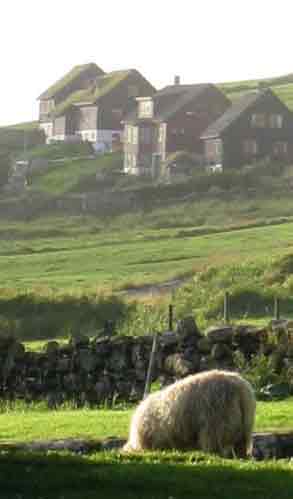|
The Conference will take place at the Nordic Culture Center in Torshavn, Faroe Islands. Sponsored by the Nordic Council, the aim of this institution is to support and promote Nordic and Faroese culture, locally and in the Nordic region. The Center has hosted a large number of cultural and scientific events since the opening in 1983.
The Faroe Islands are widely known as an epidemiological setting, although few non-Scandinavian researchers have visited the islands. Historically, Panum first described in 1846 a measles epidemic that affected all residents, who had not been affected by an epidemic, several decades previously. Much later, international researchers demonstrated that multiple sclerosis emerged as a “new” disease that could be linked to the placement of British troops on the Islands, during World War II. Further, Parkinson’s disease has recently been found to occur about twice as frequently as anticipated, according to Scandinavian prevalence data. Most recently, the Faroes has become known for extensive birth cohort studies that have examined the adverse effects of seafood contaminants on brain development.
The Faroe Islands constitute about a dozen inhabited islands and a population of slightly less than 50,000. The Faroes are an independent nation that – like Greenland – constitutes part of the Kingdom of Denmark. This prosperous fishing community is situated in the heart of the Gulf Stream in the North Atlantic, northwest of Scotland and halfway between Iceland and Norway. Of interest from an environmental health viewpoint, traditional dietary habits include meat and blubber from the pilot whale. Due to biomagnification of persistent substances, the Faroese are therefore exposed to industrial contaminants from far-away sources and at levels that, in some cases, greatly exceed those normally encountered elsewhere.
We hope that the PPTOX conference will attract toxicologists, epidemiologists, paediatricians, and other specialists with an interest in environmental health, developmental toxicity, and human disease etiologies. Funding for a small number of travel fellowships is being sought to facilitate participation of students and colleagues from developing countries.
The conference will include a mixture of invited front-line presentations, contributed oral presentations and posters, and targeted discussions. The posters will be presented both at the conference center and on a modern ferry during an afternoon cruise between the islands. Posters must fit on boards 200 cm high x 100 cm wide. The discussions will include the development of a consensus document on the public-health importance and research implications of developmental toxicity in regard to environmentally-induced disease.
Internet access: Some of the hotels make access to the internet available to their guests, and the conference center provides a wireless internet connection (password is needed and can be obtained from the conference secretariat).
|
 |